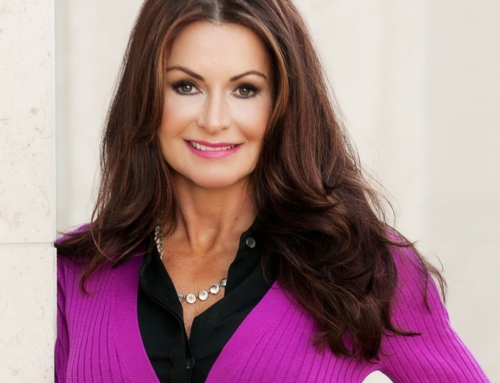As a part of my series about strong women leaders in the cannabis industry, I had the pleasure of interviewing Deborah Carter, Co-Founder, Trove CBD.
Deborah Carter began her professional career as an advertising copywriter, first for Wyeth Pharmaceuticals, and later for the then largest ad agency in Philadelphia. A move to Washington, DC found Deborah rooting for the Hoyas and earning her law degree from Georgetown University while helping to build a consulting firm where she managed the Superfund sampling and analysis program for the US Environmental Protection Agency. Leaving the Clean Water Act for the clean water of Colorado, Deborah moved west to pursue the practice of law. An accomplished artist and designer, and an avid animal lover, Deborah competes in the equestrian sport of dressage and fosters rescue dogs, to date helping over 50 dogs and puppies find their forever homes. Her years of service on the board of a major charitable foundation contributed to significant awareness and advances in animal health research. In fact, it was the search for answers in resolving a devastating neuromuscular condition in her young horse that benched retirement and inspired Deborah and her son, Sam, to bring the health and wellness benefits of CBD for people and for animals to the marketplace with Trove. Deborah and her husband, Mark, have lived in Evergreen, Colorado for over three decades, raising their three children and actively supporting community businesses, organizations, and outreach activities.
Thank you so much for doing this with us! Can you tell us the “backstory” about what brought you to the cannabis industry?
I never actually sought to start a new business venture at this time in my life. After nearly a half century spanning careers in advertising, consulting, law, and design (peppered throughout with parenting a growing family), I actually was looking forward to the possibility of “real” retirement. However, a stunning palomino filly named “Star” had a different plan for me. On her way to a promising performance career, my young horse started exhibiting a baffling neuromuscular condition, presenting with involuntary and uncontrollable superficial muscle fasciculations, the increasing frequency and severity of which caused this once affectionate girl to become a danger to herself and to her caregivers. After exhausting all veterinary diagnostic and treatment options, leaving the veterinarians out of ideas, I feared that, absent a miracle, I would have to euthanize my beautiful young horse. After much investigation revealing positive anecdotes but sorely few hard facts, and with the blessings and hopeful expectancy of Star’s treating veterinarians, I decided to institute my own trial of oral CBD as an alternative and final effort to save Star. The results were nearly immediate, and Star made a dramatic turn for the better. She continues today at age 5, to show almost no signs of her previous neuromuscular condition. This search for answers in resolving Star’s devastating neuromuscular condition benched my retirement and inspired me and my son and co-founder, Sam, to bring the health and wellness benefits of judiciously crafted, premium CBD products for people and animals to the marketplace with Trove.
Can you share the most interesting story that happened to you since you began leading your company? Can you tell us what lesson you learned from that?
Earlier this year, world-class athlete, five-time US Olympian, and friend, Steffen Peters, chose to share publicly the story about his battle with anxiety and depression, and how Trove CBD helped him through the darkest time. After talking with me for hours about CBD and specifically the trusted THC-free formulation of Trove CBD for tested Olympic athletes, Steffen added Trove to his arsenal against anxiety. Rather than keeping his experience private, Steffen shared it, letting others know that even national icons at the top of their sport share the same struggles as the rest of us. “If I can help even one person from going through what I have gone through, it will be a win.” Steffen’s story has seen worldwide press coverage, but the wellness benefits he attributes directly to Trove and similar accounts of other Trove users continue to inspire me to grow this company: helping even one person, one dog, one cat, one horse. . .
Can you share a story about the funniest mistake you made when you were first starting? Can you tell us what lesson you learned from that?
Prior to Trove’s official launch in September of 2018, we initiated a “soft launch” sending products to close friends and family members to work out any bugs in our startup protocols. My brother, a sufferer of serious knee issues since his younger competitive basketball days, was naturally a devout fan of Trove CBD Body Balm 750. When he received his order of three peppermint balms, he was quick to inform me that one jar was full, one was empty, and the third while also empty was clearly “used” with only some smears of balm left inside the jar. Embarrassing, but lesson learned: refine fulfillment/shipping protocols to match the quality control standards of our products. And continue to keep your sense of humor, because siblings never let you forget your mistakes.
Do you have a funny story about how someone you knew reacted when they first heard you were getting into the cannabis industry?
To say that I have long been an outspoken critic of recreational drug use is an understatement. Harkening back to their high school years, my children most certainly would attest to this. So, after setting aside my militancy, gaining actual knowledge and understanding of hemp-derived cannabinoids, and experiencing firsthand the profound and dramatic healing effects of CBD for my young horse Star, I had no choice but to broaden my mind. After additional convincing “in-house” trials, I informed my son we had to do this. “Do what, exactly? Get into the cannabis business with the one person in the universe most adamantly opposed to weed?” The following week we started drafting a business plan.
None of us are able to achieve success without some help along the way. Is there a particular person who you are grateful towards who helped get you to where you are? Can you share a story?
Trove is truly a family business, co-founded with my son, Sam, who is unique in combining creative, technical, mechanical, business, and interpersonal skills like no other person: wise, intellectually curious, and informed way beyond his years. My daughters, Madison and Avery, both gainfully employed in their own careers of finance and design, respectively, have participated in the development and growth of Trove since its inception, providing business planning, networking, graphic design and media content with unsurpassed talent and commitment to this enterprise. My husband, Mark, a PhD chemist, instrumental during his professional career in creating the analytical testing protocols widely used in the environmental and pharmaceutical industries, has provided support and tolerance not only during all my career and equestrian pursuits, but specifically in helping to inform and guide the technical aspects of Trove product formulations, QA/QC systems, laboratory testing practices, and customer service standards. Trove would not exist without my family’s collective passion and participation.
Are you working on any new or exciting projects now? How do you think that will help people?
We are working on increasing national distribution of the Trove brand in order to bring premium CBD products to a greater number of people and animals nationwide, utilizing cutting edge technology to develop new and innovative CBD products that will stand out in a growingly crowded and confusing marketplace, and contributing to clinical research that will continue to inform consumers and regulatory bodies about the promise of CBD for health and wellness.
Ok. Thank you for all that. Let’s now jump to the main core of our interview. Despite great progress that has been made we still have a lot more work to do to achieve gender parity in this industry. According to this report in Entrepreneur, less than 25 percent of cannabis businesses are run by women. In your opinion or experience, what 3 things can be done by a)individuals b)companies and/or c) society to support greater gender parity moving forward?
Women, in particular, face a “Hobson’s Choice” as they contemplate the decision of growing their careers…or not. Typically, the ascent to upper level business management positions across nearly all industries and professions conflate with decision time for many young women to start a family. Traditionally and culturally, perhaps even biologically, mothers have assumed the main duties of child rearing, resulting in an unfortunate exodus from the workplace, including management positions, at precisely the time these young women are so well poised to take on more responsibility, eventually even run the show. Like many other young female attorneys, I made the decision to devote my passion, energy, wisdom, time, and compassion to raise a family rather than become a partner in my law firm, a position to which I aspired but recognized would tap those same qualities to the ultimate detriment of both pursuits. Some 30+ years later, I am utilizing my expertise to lead an exciting new business venture, while my two adult daughters, both successful young career women, are now approaching the same juncture I met in the late 1980’s. The business world, and the world in general, would be a better place with those two and many others like them in leadership positions. So what can be done to support more gender parity?
1) Greater acceptance by society of fathers becoming “stay at home” dads (resulting no doubt in an increased willingness for dads to assume this role that perhaps they always secretly wanted); a return to the “extended family” where childcare remains within the family allowing both parents to continue in high profile career positions, and/or greater acceptance by society and family of women choosing not to have children;
2) Improved accessibility to startup capital directed towards women returning to the workplace to start or assume ownership/leadership roles in business after a parenting hiatus;
3) The creation of corporate incubator/mentorship programs to help identify and develop leadership skills and business acumen as women enter and advance in the industry. These programs can and should rely heavily on participation from women who themselves might be on the tail end of their own business sabbaticals, thereby also serving as a powerful springboard for these knowledgeable resources to re-enter the marketplace as business leaders.
You are a “Cannabis Insider”. If you had to advise someone about 5 non intuitive things one should know to succeed in the cannabis industry, what would you say? Can you please give a story or an example for each.
As Trove is positioned in the hemp-derived CBD industry, rather than the broader cannabis industry, my advice is specific to my company’s narrower, but rapidly expanding marketplace.
1) Wear the hat of a regulator. In the current CBD space where federal and state legalities are unclear, and FDA regulation looms large, the companies that will succeed will set their own high standards for product quality, analytical testing, labeling, marketing, and customer service.
2) Develop and adhere to your brand identity. The CBD industry is experiencing explosive growth, and the marketplace is crowded and often confusing. The brands that maintain integrity of constitution, clarity of messaging, and adherence to industry standards will increase their likelihood of success.
3) Don’t succumb to marketplace trends. As we began to experience the euphoria of customer acceptance of Trove CBD products, I was tempted to add “au courant” offerings to the Trove product line. One of these potential new products making its trendy way into the marketplace was CBD bath salts and bath bombs, and I was already planning the beautiful jars, colors, and packaging, and writing copy about the benefits of a full body soak in CBD. Fortunately, my co-founder brought me back to reality, reminding me that, once diluted, such a product would offer zero therapeutic benefits of CBD. We would be doing a disservice to our growing customer base just as they were beginning to rely on Trove to provide products with formulations and dosages that actually work.
4) Know what you don’t know. Despite your undisputed business acumen, post-graduate degrees, and career credentials, be open to fresh ideas, new technology, what the competition is doing, and most importantly, burgeoning research and its direct applications to your customers. We all are embarking on uncharted territory, and we industry leaders have an obligation to seek knowledge and guide its future ethically and responsibly.
5) Forget what you ever knew about advertising, banking, or abiding by the law. Despite the passage of the 2018 Farm Bill, the CBD industry remains in the ranks of the cannabis industry and its cohorts of dubious legality or social acceptance such as gambling, prostitution, and travel companies. As a result, simple activities in the normal course of business such as social media advertising and banking are complex at best, and often unattainable. Efforts to follow the law are confounded because laws are unclear or selectively enforced.
Can you share 3 things that most excite you about the cannabis industry?
1) The prospect of much needed scientific research and clinical trials to explore and inform the promise of CBD to improve the health and well being of people and animals.
2) The real life results that I hear on a daily basis from people who have seen life-changing benefits from adding correct dosage regimens of premium CBD products to improve health and wellness for themselves and their animals.
3) The critical role that CBD (as well as other cannabinoids) may play in the reduction of opioid addiction and deaths, if the potential of these natural products is duly explored, documented, and applied.
Can you share 3 things that most concern you about the industry? If you had the ability to implement 3 ways to reform or improve the industry, what would you suggest?
1) Misinformation
2) Lack of self-regulation in the marketplace
3) Threat of Big Pharma to synthesize CBD to the detriment of natural products from hemp
In a marketplace often described as “The Wild West”, the very best CBD companies are striving to create and adhere to standards for quality, manufacturing, testing, labeling, and marketing in an environment where no official requirements exist, and the law is far from clear. Those companies that offer cheap products utilizing inferior ingredients, have little or no regard for QA/QC, do not test for concentration or contaminants, and make massive, unfounded medical claims serve to jeopardize not only their customers, but also the entire CBD industry. My reforms would include:
1) A robust scientific research effort combined with a public communication campaign;
2) Enumeration and adherence to a set of generally accepted industry standards relating to quality, production, testing, labeling, and marketing claims; and
3) The erection of a “Chinese Wall” between Big Pharma and the Food and Drug Administration to help prevent any conflicts of interest or undue influence as FDA seeks to define appropriate regulatory parameters for the CBD industry.
What are your thoughts about federal legalization of cannabis? If you could speak to your Senator, what would be your most persuasive argument regarding why they should or should not pursue federal legalization.
Again, Trove’s sphere of operations is within the CBD industry, not the broader cannabis industry. With the passage of the 2018 Farm Bill, the federal regulation of industrial hemp has shifted, but the laws and regulations relating to CBD remain murky at best. If my three reforms stated above could be implemented successfully, I believe CBD products that meet such industry standards would garner overwhelming federal and state legislative support.
Today, cigarettes are legal, but they are heavily regulated, highly taxed, and they are somewhat socially marginalized. Would you like cannabis to have a similar status to cigarettes or different? Can you explain?
CBD should enjoy a status diametrically opposed to cigarettes. CBD products manufactured and sold according to industry standards and appropriately enacted regulation should be made available as a retail wellness supplement or topical preparation for people and animals.
Can you please give us your favorite “Life Lesson Quote”? Can you share how that was relevant to you in your life?
I can still hear my World War II US Navy veteran dad’s voice as clearly today as it was over 60 years ago: “You can do anything you want to do and be anything you want to be if you seek knowledge and education.” With this advice in my head through the years, I successfully negotiated my way through middle school, high school, first jobs, college, social relationships, law school, careers, and life in general. Even as a woman growing up in the 1960’s, I remained blind to gender obstacles, strived for goals I sought to achieve, and mentored others (both male and female) with whom I was fortunate enough to share my dad’s words.
You are a person of great influence. If you could inspire a movement that would bring the most amount of good to the greatest amount of people, what would that be? You never know what your idea can trigger. 🙂
#nopioids
I would hazard a guess that there is not one person whose life has not been touched or, worse yet, devastated by the realities of opioid addiction. In addition, the economic impact of opioid abuse is staggering. As a co-founder of Trove, LLC, I would like to step up and encourage investment in the well being of the work force, enhance community resources, and contribute to education and treatment options by inspiring like-minded businesses to become stakeholders and engage in #nopioids, a movement that would promote workplace and societal measures to respond to and help eradicate opioid addiction.
Thank you for all of these great insights!



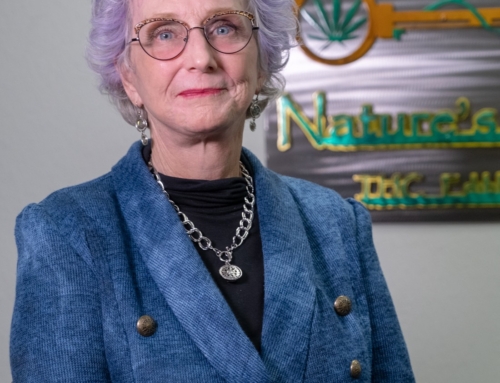
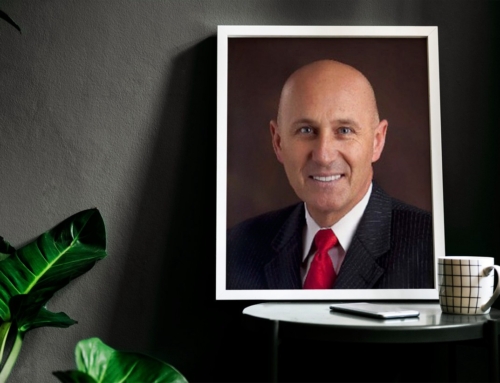
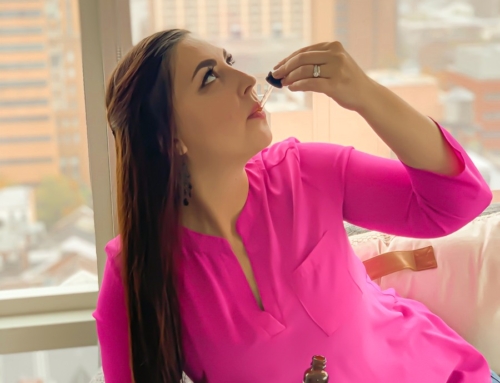

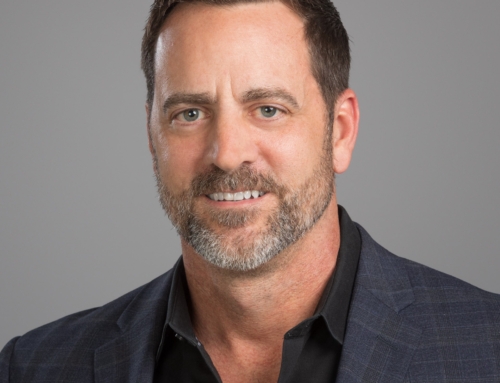
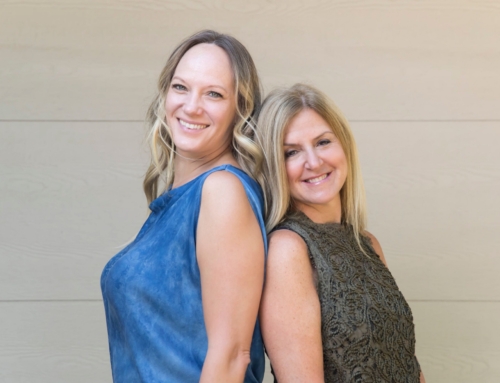
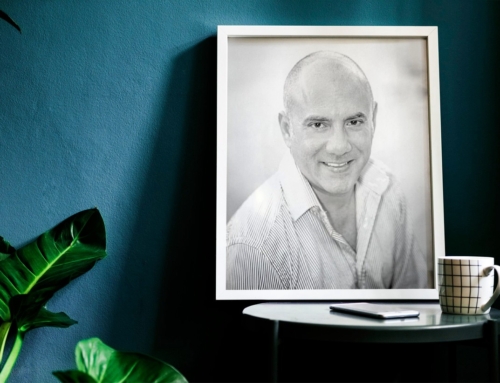
![“The potential to help people [in this industry] is enormous, but there’s still so much to learn.” – Ramon Alarcon, Witi](https://lakesideremedy.com/wp-content/uploads/2020/12/1thj5ekUyxQ69iLz1JJyODg-scaled-e1607882756286-500x383.jpeg)
